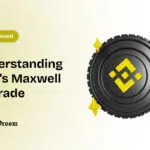The decentralized innovation world, Explaining what DAOs are about, their operations, challenges, and influence upon new organizational management models. This article is aimed at thoroughly inspecting the future of decentralized governance hereafter.
Become conversant with the new organizational structure model. Pulling back the lid of DAO, we examine what is going on within DAO and the problems existing within this fragmentary dimension. Unveil the revolutionary might of DAO as another channel for establishing a decentralized and democratic governance system in various sectors. Examine what impact these independent bodies will have on the way we come together, and agree, as well as governance.
The concept of DAOs is definitely among the most innovative in the area of the blockchain and the decentralized world. Blockchain technology has created a unique organizational system, management structure, and decision-making approach called blockchain management system or block management for short. According to the definition, a Decentralized autonomous organization should be a new decentralized hierarchical structure that replaces the traditional authority, as well as a group of people who want to do certain things together.
Twitter has more information on what DAO is:
Understanding the Foundation of DAOs
In essence, a decentralized autonomous organization is an autonomous and self-governing entity with no command center or a single point of influence and control. DAO’s core principles hinge on decentralized decision-making, transparent processes, as well as programmable governance rules. Using blockchain technology, the organization creates a set of rules known as smart contracts thus automating the decision-making process.
Structural Elements of a DAO
A DAO’s structure comprises several integral components:
Smart Contracts
Smart contracts define the pillars of a DAO in terms of operation and implementing actions once certain conditions are satisfied. The blockchain network is enforcing these types of contractual agreements without other entities sitting on top. Transparency, integrity, and trust in a voting process within the DAO.
Rules and Operations
Some of these rules are on how the funds will be allocated, the criteria for membership, the mechanism or rules for decision-making, and the proposal mechanism. They are predefined rules operating without any control from third parties.
Automated Execution
The decentralized autonomous organization can use smart contracts to automate such steps as releasing money, changing governance rules, or making an action in case of votes’ results. These autonomous decisions prevent the need for centralized management, which gives rise to trust in the whole system.
Tokenomics
Tokenomics is used for an economic model, which explains token utility in DAO as well. Such native tokens serve various purposes–shareholder rights, participation in management, voting powers, and monetary incentives in exchange.
Ownership and Governance Rights
They belong to token holders and they also have a vote reflected by a percentage of these tokens. This gives them governing rights, proposing and making some crucial decisions concerning the network.
Incentive Mechanisms
That is why they make tokenomics towards desired behavior or contribution for DAO. This reward can include recognition of, and payment to, active participants such as those who contribute to the ecosystem, or who align with the Dao’s purposes.
Utility and Ecosystem Participation
Besides governance, tokens can play specific roles in the operation of a DAO, such as accessing and consuming services, payment for goods, and operation of a dApp-powered DAO.
Governance Mechanisms
The governance features enable the decision-making in a DAO, as well as ensuring the participation of the token holders in the directions taken by the enterprise.
Decentralized Voting
Token holders use voting rights to determine how their interests get affected by ideas or proposals that impact DAOs. The voting mechanism in smart contracts ensures transparency, and it also prevents manipulation of voting after the decision has already been made.
Proposal Submission
Any contributor to the ecosystem can propose changes, projects, and investment proposals for a decentralized autonomous organization. Token holders take some time before they do the voting using their votes. This means that it is a democracy because the community, being very important, plays a huge role in any change by DAO.
Proposal Process
It should be noted that DAO has ways of reaching out to its members where one can send an idea, proposal to the DAO or just check if it can be accepted into the DAO itself.
Open Proposal System
As with most laissez-faire DAOs, raising one’s proposed points of agenda is a common phenomenon. In this regard, they can create certain special measures directed toward the enhancement of ecosystem benefits. Such may include changing the rules of governance, writing applications for funding, etc.
Voting and Implementation
Afterwards, token holders submit proposals and vote within a determined window of time. When that quorum gets the predetermined number of votes to count on the proposal, the smart contract then performs the vote. Transparency in decision-making makes this possible.
The Functioning of DAOs
Proposal Submission
Initiatives, Changes, and Investments
Others, like members of the DAO ecosystem, can suggest some projects or investments that a company could undertake.
The main issue to be implemented is to include the introduction of new projects, modification in the management structure, finance distribution to stakeholders for better results, and additional environmental considerations in the decentralized autonomous organization enclaves for better outcomes.
Transparency and Openness
Many times, DAOs are just a channel where people present fresh ideas, assertions, or even recommendations that need to be done. As a group, promotes an environment with room for many views and hence directs decentralized autonomous organization.
Voting Period
Democratic Decision-Making
In the course of time, they participate in the proposed votes from other token holders. The specific phase is based on the legislative provisions set out in distinct decentralized autonomous organization regulations. In addition, most of these ideas need a majority vote, which translates to many votes.
Inclusivity and Participation
It aims at empowering the token holders who will participate in deciding how the decentralized autonomous organization should direct itself. This mechanism leads to the decentralization of authority within an organization; whereby token holders vote for proposals that they find beneficial to the organization and hence for democracy.
Execution
Automated Implementation
During the voting period, accepted proposals are supported and implemented. Smart contracts act as autonomous agents thereafter and they process all accepted actions without any obstacles. Hence, winning bids may include financing, modification of the governorship system, modifications in the DAO operations, or starting projects suggested in all proposals put forward independently.
Decentralized Autonomy
An automated self-implementation of propositions within a decentralized autonomous organization is also implied by smart contracts. This makes sure that DAO’s decision is open and trustworthy, and that it operates in accordance with the established rules from the smart contract code before now.
Continuous Evolution
Adaptability and improvement
herefore, this can be termed as a fluid organizational structure. The constitution also takes into consideration a specific community’s latest change amendment votes. Repeating through steps mentioned above and adapting as much as needed will improve DAO’s governance, workflow, and protocol.
Flexibility and Agility
In such cases, their only motive is to comprehend how they came into being in order to ascertain the process of evolving. Consequently, the adaptability of DAO could help in improving the same towards the welfare of its stakeholders.
Challenges and Considerations
Security Risks
Smart Contract Vulnerabilities
Smart contracts, as a theory, must be autonomous and secure, yet might have vulnerabilities and bugs as well. For example, these weaknesses may facilitate a denial of service attack, an attempt to nullify the elections, or render decentralized autonomous organization inoperable. Some of these loopholes may also be exploited by hackers who can then steal funds, change governing rules, and deny subscribers.
Code Auditing and Security
There is a rigorous and routine evaluation designed to pinpoint every occurrence of such compromises on security. Nevertheless, while undertaking auditing, there could be a need for additional spending in clarifying some issues on securities concerns raised by DAOs.
Regulatory Uncertainty
Evolving Regulatory Landscape
Firstly, there are various jurisdictions that consider themselves to be beyond the statutory umbrella of that DAO. However, compliance with the law is only possible when appropriate laws and legislation concerning DAO are enacted. Notwithstanding, this development causes ambiguity to arise with respect to such provisions within regular financial systems.
Compliance and Legal Challenges
Such effects include taxation, AML/KYC, and governance.
Governance Efficiency
Consensus and Decision-Making
Agreeing on a DAO with various stakeholders may be difficult. The governance is not sound and there may be stalemate among owners of tokens with differing interests, opinions, and conflicts. Conflicts resulting from differences of opinion or conflicting interest retard effective decisions and efficient manner in which to govern.
Complex Voting Dynamics
It is quite difficult to ensure that voting mechanisms work properly–they should stimulate participation, be free of fraud, and ensure fair election results. There should be an enough balance in the voting processes to avoid voter apathy or domination of large token holders within DAO settings.
Community Engagement
Token Holder Participation
In order for DAO to work like a democracy, token holders should engage and participate. Nonetheless, it turns out to be hard to create wide and diverse participation with corresponding incentives for high-quality input. The token holders may not have much interest or rather, they appear not to take an active part in decision-making, which consequently leads to minimal engagement rates within the DAO.
Communication and Transparency
That includes having efficient communication channels and making token holders feel like they are part of the community or society. Ensuring these provisions are accessible to all involved stakeholders is not simple, especially in large, diverse DAO communities.
Future Prospects
The bright future of DAOs is a factual matter. If development or scalability options are provided, then DAOs will still be leading in the decentralized governance structures. In DeFi systems, governance, supply chains, or social networks, have their applications there.
Conclusion
These actors embody a new mode of operation in such areas as collective decision-making, group creation, establishment, and formation of regulatory regimes. It is intended to be a decentralized one with an added transparency and governance model that is community-based as a model of innovative organizations working towards revolutionary changes in the framework. In the coming age, with the growing maturity of technologies, DAOs will remain cornerstones for an era of solid confidence, transparency, and equity in several domains.
















